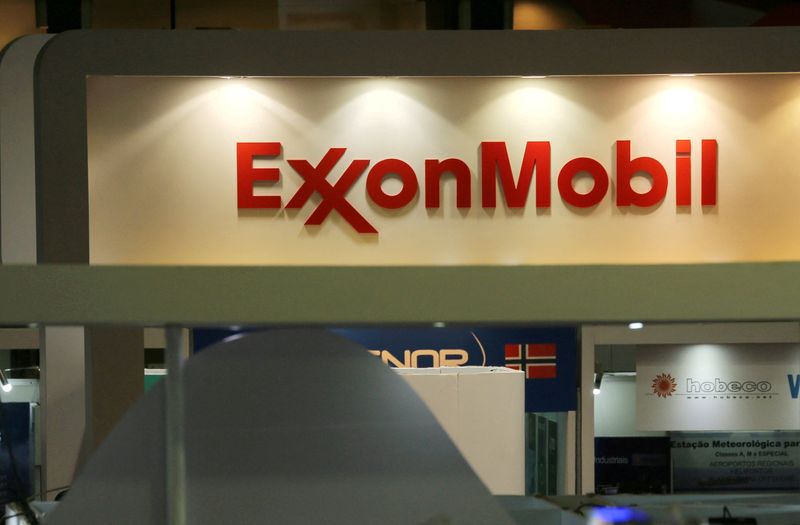Decarbonization business could outgrow oil -Exxon executive
2023.04.04 10:32

© Reuters. FILE PHOTO: A logo of the Exxon Mobil Corp is seen at the Rio Oil and Gas Expo and Conference in Rio de Janeiro, Brazil September 24, 2018. REUTERS/Sergio Moraes
By Sabrina Valle
HOUSTON (Reuters) – Exxon Mobil Corp (NYSE:)’s Low Carbon unit has the potential to generate hundreds of billions of dollars over time and outperform the company’s traditional oil and gas business, top executive Dan Ammann told Reuters.
The largest U.S. oil producer on Tuesday lays out to investors the aims of its emerging energy transition strategy in a meeting with Wall Street. Exxon foresees a future less prone to commodity price swings through predictable, long-term contracts with customers striving to reduce their own carbon footprint.
“This business is going to look quite a bit different than the base business of Exxon Mobil,” vowed Ammann, president of Exxon’s two-year-old Low Carbon Business Solutions unit. “It is going to have a much more stable, or less cyclical, profile.”
How quickly that vision becomes a reality will depend on regulatory and policy support for carbon pricing – something the United States has not broadly accepted – and the cost to abate greenhouse gas emissions, among other changes, he said.
“We will put out some parameters for how we see that growth unfolding,” Ammann said, declining to comment on whether expectations for rising oil prices underpin the strategy.
Exxon is one of the most oil- and gas-focused companies among Western oil producers, a strategy that delivered record profits for its investors last year as fossil fuel prices soared.
Unlike its peers, Exxon has stayed away from renewable energy like solar and wind. Its energy transition plans lean heavily on reducing carbon emissions from its own operations, which Exxon is spending $10 billion by 2027 to implement.
The company is investing another $7 billion to commercialize three technologies to reduce greenhouse gases: carbon capture and storage, hydrogen as a fuel and biofuels.
The three have a combined market potential of $6.5 trillion by 2050, equivalent to the traditional oil and gas business, the company estimates.
Exxon on Tuesday disclosed that it signed a long-term agreement with New-York traded Linde (NYSE:), adding a new client to its portfolio of companies looking to pay to decarbonize their own operations.
Under the agreement, Exxon will transport and permanently store up to 2.2 million metric tons of carbon dioxide each year from Linde’s hydrogen production facility.
Exxon has expectations to make “robust double-digit returns in the business” built off these long-term contracts, Ammann said.








